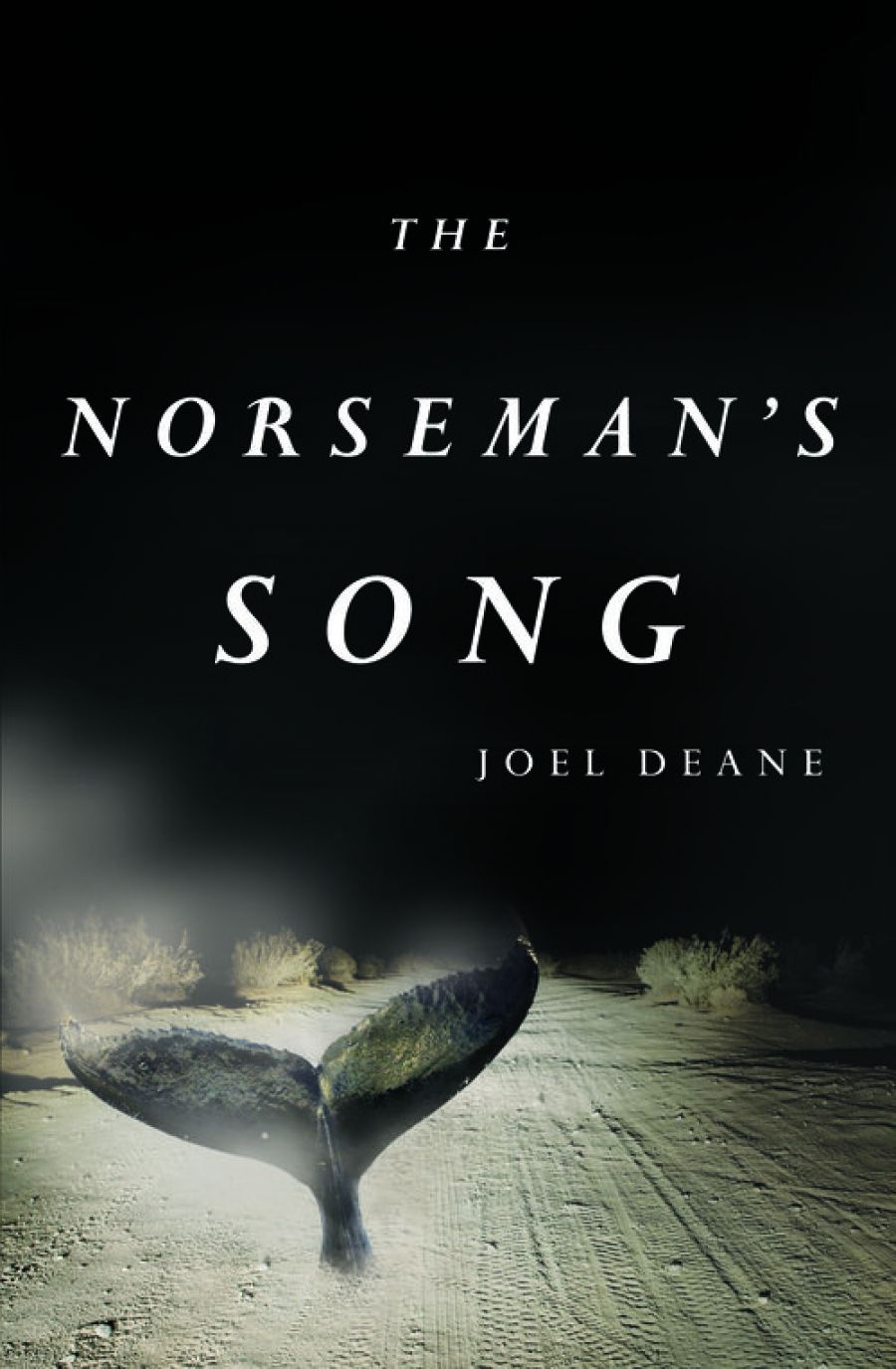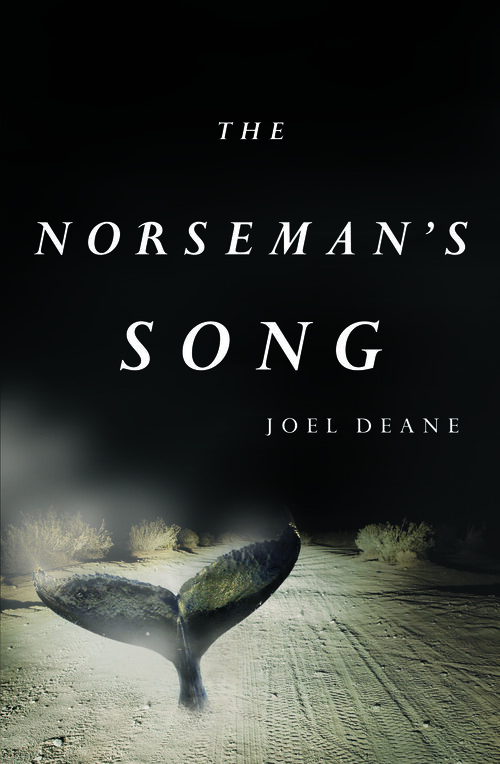
- Free Article: No
- Contents Category: Fiction
- Review Article: Yes
- Online Only: No
- Custom Highlight Text:
A Norwegian giant stands astride the deck of a whaling ship trapped in the Arctic ice, watching the other vessels in the fleet burn. Axe in hand, he patiently awaits the arrival of some disgruntled Eskimos, whom he expects to have to fight. Plagued by visions of a lost love, the Norseman commits the tale of his violent life to paper. One hundred and forty years later, a gaunt, dishevelled man climbs into Farrell’s taxi. He carries with him a box containing an ancient woman’s head, a dildo carved from whalebone and the journal of Ole Olavssen, the Norseman. The decrepit man, Bob Kilmartin, instructs Farrell to drive. Despite having just been beaten up by a transvestite colleague on Collins Street, Farrell obliges, desperate for the fare.
- Book 1 Title: The Norseman's Song
- Book 1 Biblio: Hunter Publishers, $32.95 pb, 240 pp
- Book 1 Cover Small (400 x 600):

Joel Deane seems like an unlikely source for such richly lurid material, given his reputation as a poet and as chief speechwriter to two Victorian premiers, including John Brumby; but his experience of putting words in the mouths of persuasive men serves him well in this, his second novel. Split into two narrative threads, the story behind Bob Kilmartin’s mysterious box is recounted to Farrell as the pair drive around a dirty, rain-drenched Melbourne reminiscent of Garry Disher’s seedy crime dioramas. Deane’s speechwriting skills come into play here, as Kilmartin tells Farrell the story of his tumultuous life in a bewildering flurry of speech and quotation marks that must have given the copy editor nightmares.
Kilmartin lost his humanity in the trenches of the Somme, emerging from the war as a capable, slightly unhinged killer of men. His subsequent career as a journalist eventually put him on the trail of the Norseman and now, in his advanced years, he seeks out the spot where their confrontation took place. Farrell is thus obliged to retrace the steps with Kilmartin, acting as a nursemaid and interested party who finds himself at a loose end. In a nod to Conrad’s Heart of Darkness, Farrell serves as a contemporary Marlow, his taxi as a boat, the highways of Melbourne as the Congo and, ultimately, Olavssen as Kurtz.
It is Farrell who provides the lynchpin for the story. Though not unsympathetic as a central character, his past term in prison and subsequent downfall have left him rootless and spiteful. He is badly treated by his boss, Jimmy the Greek, who gives him the worst car in the depot to drive, despite describing it as ‘a Hellenic chariot’. A cab-sharing alliance with cross-dressing driver Max Cuddie has also gone badly wrong, with Farrell on the receiving end of a beating at the novel’s opening that pains him throughout. Farrell’s employ of language is impressively authentic, the virulent swearing and street patois evoking an ordinariness that is all too often absent from contemporary Australian literature. Where other novelists would hesitate, fearful of alienating a middle-class book-buying audience, Deane plunges head first into the grime and disappointment of modern Australia. Farrell is not an Aussie battler, but an Australian who has battled and lost. Despite the incredible story unfolding before him, for Farrell this is just another night, his struggle to survive quietly moving.
Interspersed with the Melbourne chapters are excerpts from the Norseman’s journal, providing welcome relief from Kilmartin’s occasionally wearisome tirade. Written in a different style entirely, Olavssen is another rich character, a whaler born on the sea and brought up in violence. His life is devoted to killing both cetaceans and men, when they get in his way. These chapters are short, sparkling enticements into a Gothic seafaring love story gone sour. Olavssen most closely resembles the character of Dirk Peters in Edgar Allan Poe’s The Narrative of Arthur Gordon Pym of Nantucket, as a powerful giant of few words whose misplaced devotion will be his undoing. Deane has succeeded in crafting a mythical character worthy of the Kurtz model, living by his own monstrous creed, convinced of his absolute rectitude.
I did not hate, nor fear, the Leviathan. I steered whaleboats out from their squat black smoking mothers, across the known surface of the unknown, without the least anxiety over the outcome of this venture, for I was God’s infernal instrument. I was God’s angel of death flying over the waters He made unfathomably deep, and I trusted my God just as I trusted myself to mete out judgement to whatever creature crossed my path. What I could not foresee was that one of those creatures, her sinful fuselage ensconced in a corset constructed from the bleached bones of what was once a whale, would better me.
It is rare to read a book with three central characters, rarer still to find one that works. Deane’s secret lies in his refusal to compromise these characters by providing them with convenient redemptions or inappropriate good qualities. These men from different eras are constantly troubling to read, often repellent but consistently fascinating. The Norseman’s Song is a refreshing, unashamedly adult respite from the anodyne family dramas that seem to plague contemporary commercial publishing. In a troubling tale bereft of heroes, Deane has penned a slice of southern Gothic that is a unique, and very welcome addition to Australian literature.


Comments powered by CComment